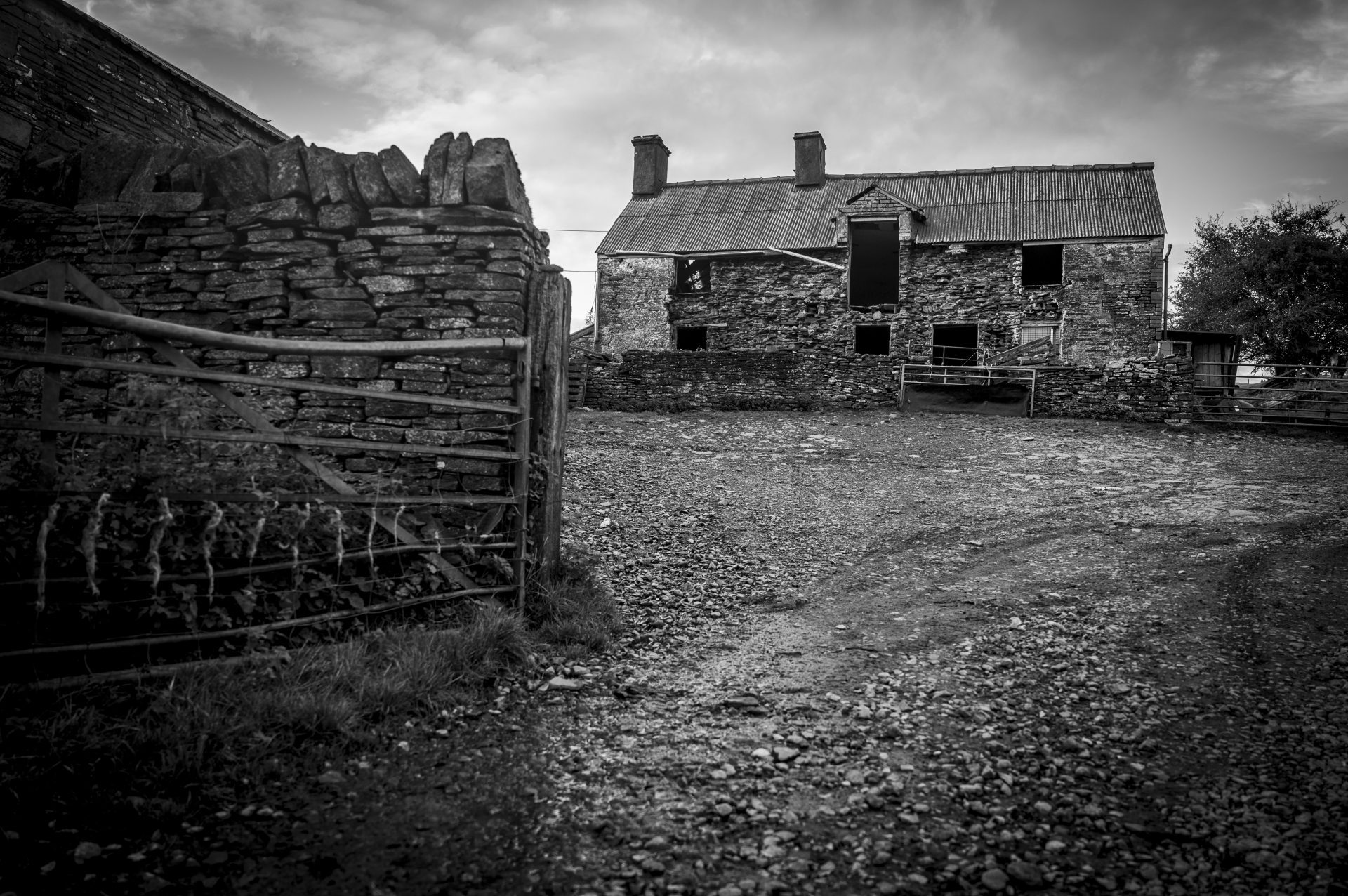Barney Norris’s debut novel Five Rivers Met on a Wooded Plain was published
in the spring of 2016, just as the EU referendum campaign was heating up. A polyphonic story in the voices of a quintet of strangers united by a car accident that took place at a road junction in Salisbury, Five Rivers… was a brilliant, refreshingly original literary novel that didn’t revolve around existential crises besetting wealthy people in north London, prompting the wealthy literati of north London to look up from their existential crises, nod knowingly and declare Norris’s book a sobering analysis of the fractured England that would produce Brexit.
Yet Five Rivers… was not a Brexit novel. Far from it. The temptation to label it so because of its timing and how it was inhabited by characters outside the capital who hadn’t been to university overlooked the fact that Norris’s book was the opposite of a fractured England. This was a novel of connections, not divisions, one written with overwhelming compassion and a level of insight that seemed way beyond the years of an author still in his twenties when the book was published.
Connections underpinned Norris’s second novel, Turning for Home, which managed to combine the twin narratives of the Northern Ireland Peace Process and anorexia, while his third, 2019’s The Vanishing Hours, brings together two strangers in a hotel bar; a woman trapped by her father’s departure when she was young, and a man in search of lost love, to trigger a form of redemption.
His fourth novel, Undercurrent, published later this month, is Norris’s
most affecting yet. Again connections abound, to places, to people, to the
past. The book inhabits part of the journey between youth and middle age
and explores the many forms of grief that underpin it, walking the line between nostalgia and ennui and evoking a strong sense of place by
emphasising how what’s gone before forges that sense of place.
Norris is a terrific writer. His characters not only convince, they’re invested with a depth of personality that fixes them in the reader’s mind long after the book has been replaced on the shelf. His novels evoke a sense of England that chimes even with people who don’t live in the Wiltshire centric world he conjures. It’s an alien world to most reviewers and literary taste-setters, one without basement conversions and artisan pastries, hence Norris maybe doesn’t receive the wider credit his books clearly deserve.

The opening pages of Undercurrent hoodwink the reader into thinking this might be one of those novels where wealthy Londoners undergo existential crises. Ed, a copywriter in his mid-30s, has been in a relationship with Juliet for six years and is saving up for an engagement ring. They attend the wedding of a friend where Juliet notices the photographer paying a suspicious amount of attention to her boyfriend. The deep-set tensions buried within their relationship thrum hard at this, and are only exacerbated
when it turns out that Ed and the photographer, Amy, have met before.
It’s only Amy who knows this until a conversation late in the evening in which she reveals herself to be the six-year-old girl Ed had rescued from drowning on a family holiday when he was ten.
This connection draws the pair together in a way that proves fatal to Ed and Juliet’s relationship as Ed and Amy embark on a romance of their own. Yet, just as we think we’ve worked out what kind of novel this is and where it might be going, Norris jolts us back in time to 1911 and flings us halfway around the world to Hyderabad as the sun prepares to set on the British Raj.
The upwardly-mobile Goan Christian parents of 13-year-old Phoebe are hoping an Englishman called Arthur French, something high up in the construction of India’s railways, will marry their daughter and bring them respectability among their peers. A brief, stiltedly formal courtship ensues and after a three-month engagement the couple are married. Not long afterwards the first world war breaks out and, pricked by patriotism, Arthur sails for home with his Indian bride to enlist in the Royal Navy.
Naturally these two narrative threads are connected in a novel whose emphasis shifts to a farm on a rainy hillside in Wales where Ed grew up that has been in the family for two centuries. Much to his mother’s disappointment, neither Ed nor his half-sister Rachel have any interest in
taking over the farm where she lives in a mould-spattered cottage with Ed’s
stepfather, surrounded by memories and stories, still going through the
gruelling annual motions of lambing even though it’s the annual subsidy
that keeps things afloat rather than anything that happens on the land.
The weight of history – and of this particular history ending with him –
presses heavily on Ed, a man at the age when the years begin to speed up and flit by faster than any of us would like. Ed’s childhood rescue of Amy, which the book’s cover image and jacket blurb suggest is highly significant,
ultimately has little influence on the plot, representing instead the connections that fire the novel and the anchoring of certain moments in time, place markers in the relentless freewheel of chronology which are
significant only when viewed through the nostalgia of missed opportunities
and roads not taken.
“When you meet someone who met you or knew you as a child, which to
my mind is like them having seen you as you really are, the air between you
changes a little,” says Ed. “They knew you when you could have been anyone, when your life could have turned into anything, not just this.”
He recalls moving back to the farm as a boy with his mother after the end
of his parents’ marriage, noting the ruined buildings in the landscape and wondering at how “those places sheltered people once, whole families, and now they were nothing. And now we were here and we’d do the same thing”.
In the hands of a lesser writer this Weltschmerz – “a band playing at a wedding always sounds to me like the saddest thing in the world, the noise of our lives passing” – could be wearyingly Eeyorish, but Norris is too smart and too concise to fall into the trap of self-indulgence. The legacy of the past is Ed’s burden and Norris writes beautifully of how the essence of every place is drawn from everything that went before, “held up, patterned and formed by a latticework of choices, decisions, memories”.
“Everywhere,” he concludes, “is made out of ghosts.”
Yet Undercurrent is also a love story. Ed and Amy’s relationship is conducted on a level that his relationship with Juliet never even approached, while that between Ed’s mother and stepfather is deeply affecting and beautifully written. Relationships between older couples are rarely tackled in literary fiction but Norris has portrayed them with extraordinary sensitivity and insight ever since Five Rivers Met on a Wooded Plain.
Undercurrent is suffused with a love of the land and a love of the past. Again, this is not a novel of Brexit Britain because the nostalgia blamed for fuelling Brexit was for a past that never existed. The past evoked here is a vivid one of real lives and real people who die, who suffer from illnesses mental and physical, who regret the way the one crack they had at life turned out, who love, laugh, strive, fail and suffer loss. All of it is there in layers, in the air, in the ground, in the masonry, everywhere.
History, like all our lives, is a succession of griefs. We grieve lost loved ones, we grieve the end of relationships, we grieve for the children we once were. We are an accumulation of grief expressed in tears, in a yearning for a past we cannot recover, in a desire to arrest the relentless progress of time and go
back to something or someone that came before.
“The Welsh have a word for this feeling: hiraeth, but there’s no word in English,” Norris writes. “And that’s strange, really, when you think about
it. Because what country can be more haunted, more crowded by the
remnants and the echoes of lost worlds than rain-soaked England?” England, full of ghosts, rinsed in regrets, infested with a desire to go back to something else even if that something else never existed in the first place.
“It is a failure of our language, a failure of our culture, not to know how to speak of the things left behind,” he writes, and in Undercurrent, undoubtedly one of the finest novels to come out of these islands this or any year, there is no more eloquent expression of that nameless, powerful sensation.
Undercurrent by Barney Norris is published by Doubleday on August 25,
price £16.99




